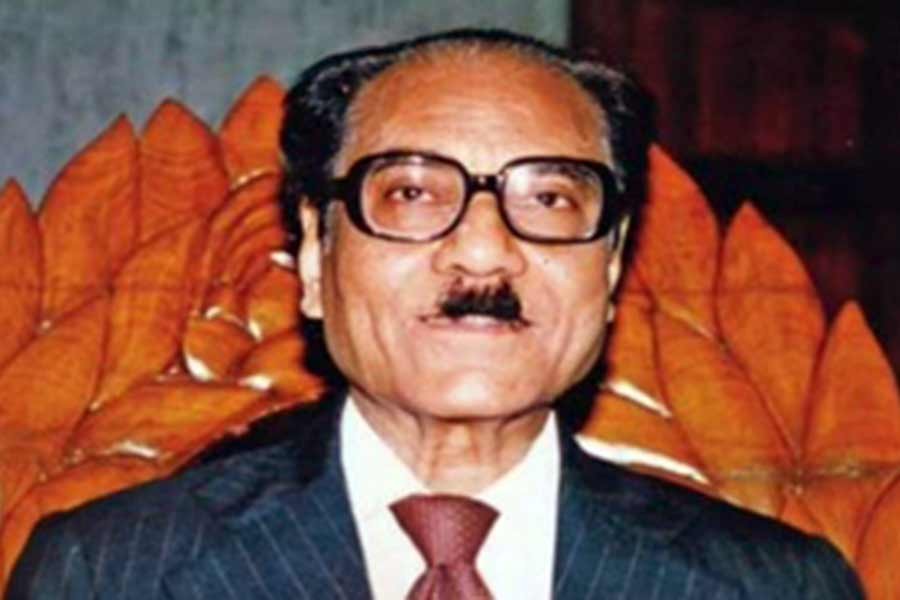One of the many perks of being the president is that all their expenses are borne by the state. The parameters of expenditure are enshrined in law and these cover everything from medical treatment to travel and other allowances.
However, what set Shahabuddin Ahmed apart during his time at Bangabhaban was his refusal to rely on the state coffers to meet his daily needs, according to bdnews24.com.
Instead, he paid for groceries and other necessities out of his own pocket, according to several Bangababhan staffers who worked at the presidential palace during his presidency.
The former president died at the age of 92 while receiving care at the Combined Military Hospital in Dhaka on Saturday. He had been suffering from complications due to old age for some time.
Shahabuddin assumed the role of head of state at a crucial juncture in Bangladesh's history. In the wake of the mass movement to restore democracy in the 1990s, the then chief justice Shahabuddin became the acting president of the county after HM Ershad resigned from the post. He subsequently headed the caretaker government that held a general election in February 1991.
Following the election, he resigned from the presidency and returned to his previous role as head of the judiciary. Just over a year into his retirement from the bench, however, he would be on his way back to Bangababhan after being elected president in 1996.
During Shahabuddin's five-year tenure as president, Abu Shahid was in charge of the pantry at Bangabhaban. Shahid retired two years ago but he was deeply moved by the news of Shahabuddin's demise.
"I had served him when he was the acting president but still lived in the chief justice's residence. I was still on duty at Bangababhan when he later came back as president," said Shahid, who worked in the residential block of the presidential palace.
Recounting Shahabuddin's 'simple' life, Shahid said he would always pay for groceries and other necessities himself. “He wouldn't take anything from the allotted fund. He would send the marketman or a member of his family to the market.”
As president, Shahabuddin would also receive numerous gifts but he wouldn't keep them for himself, according to Shahid. "He handed them out to the members of staff at Bangabhaban."
But due to his disdain for corruption, he also had many detractors, according to another Bangabhaban staffer.
Shahabuddin also abolished many posts upon taking over the presidency. Many, who clung onto a post despite not having any actual duties at the presidential palace, were sent away to different ministries. Shahid was one of them but he was later brought back to Bangabhaban.
Shahjahan Khan, who retired as a 'silver storeman' in 2016, was also a longtime member of staff in the residential block of Bangabhaban. His job was to take care of the cutlery stock.
"Shahabuddin Ahmed used to look after the administrative side on his own. If there was ever a problem, he would not sit down with an officer. He himself would provide supervision,” said Shahjahan.
"I took the job before the time of Ershad. I have seen Shahabuddin sir up close. He would not allow state money to be wasted anywhere. That is why he sent many [staffers] back to the ministry. When an employee approached him with a problem, he always look to solve it himself.”
Shahabuddin made many rules during his tenure, which had to be changed later for practical reasons, said a current official at Bangabhaban, who asked to remain anonymous.
"He reduced the number of posts at Bangabhaban. Recruitment rules have since had to be amended as more people were needed. He may have thought the manpower at the time exceeded requirements but many posts had to be reintroduced later.”
Born in Netrokona in 1930, Shahabuddin was appointed to the High Court Division shortly after independence. He was sworn in as the country's sixth chief justice in January 1990, a decade after taking office as an Appellate Division judge.
After the fall of military dictator HM Ershad's government in December 1990, Shahabuddin formed a caretaker government with non-political persons and held a ‘free and fair’ election in the country in February 1991. He gave back freedom of the press by amending a number of laws, including the Special Powers Act.
Ahmed was chosen by all political parties, including Ershad, to hold the interim government that would oversee the neutral election to parliament.
In 1996, Shahabuddin was nominated for the presidency by the Awami League government and was elected unopposed. He fell out with the Awami League after it lost the parliamentary election in 2001. Ahmed retired from the presidency that same year.
Since then, he had been living a very secluded life at his home in Dhaka's Gulshan.


